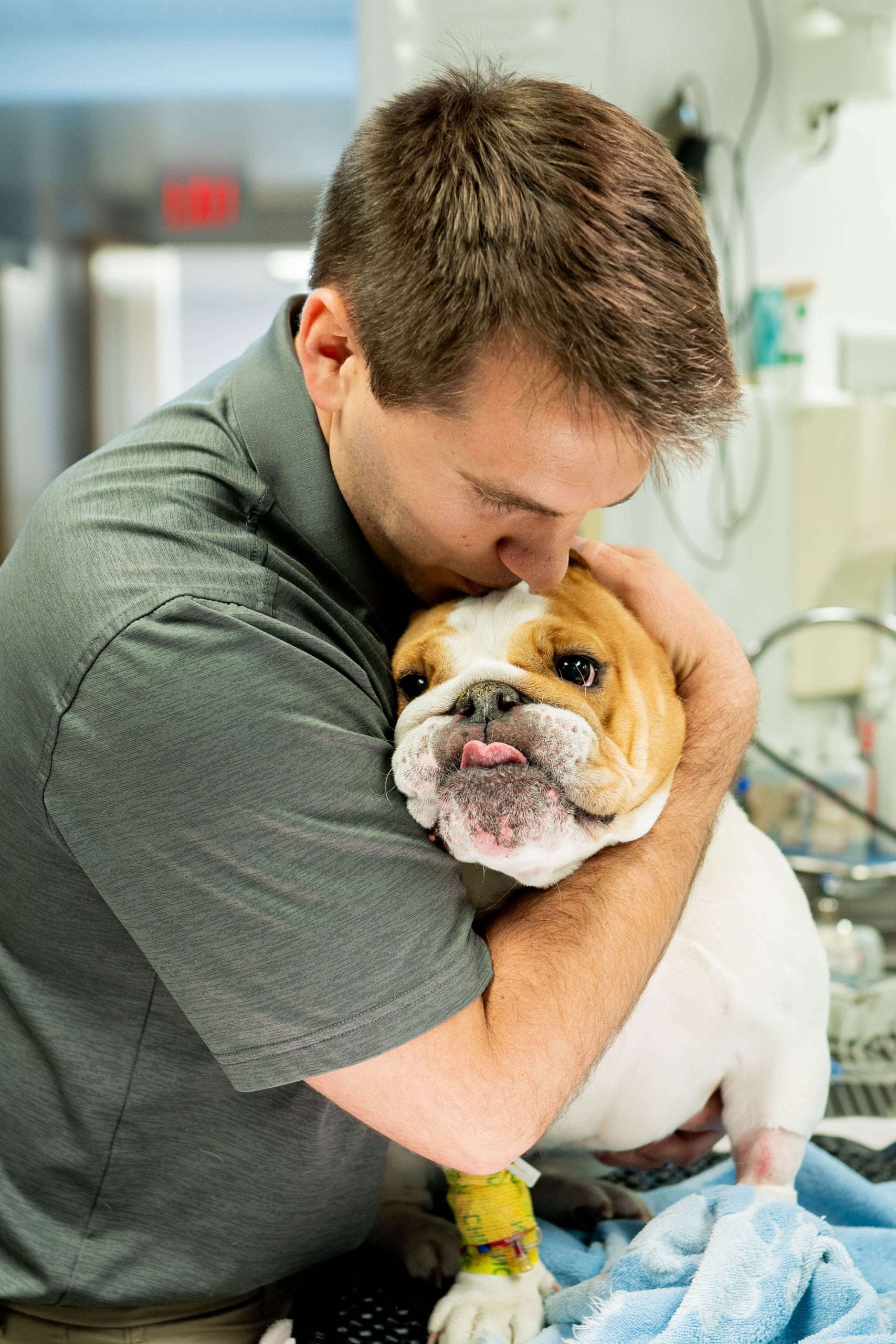Though the weather may seem nicer and the leaves may be turning, there are still many things
you have to look out for to keep your pet safe.
Fleas

At Central Vet, we recommend flea treatment and prevention all year round, but it is commonly believed that flea treatment can be stopped once the weather gets colder. In recent years, fleas have failed to die off with the frost, due to mild winter weather. Keep an eye on your pets and think hard about your pet’s flea and tick prevention. Click here for more information about preventatives that we carry at our hospital.
Heartworm
As with fleas, it is a common belief that once it gets colder, the risk of heartworm disease decreases. At Central Vet, we recommend keeping your pet on a heartworm preventative year round. It is imperative for you to keep your pet on heartworm preventative year round, as it protects your pet from developing heartworm disease, which can be extremely expensive to treat and potentially life threatening for your pet. For more information about heartworm disease, click here. For a list of the heartworm preventatives available at our hospital, click here.
heartworm disease decreases. At Central Vet, we recommend keeping your pet on a heartworm preventative year round. It is imperative for you to keep your pet on heartworm preventative year round, as it protects your pet from developing heartworm disease, which can be extremely expensive to treat and potentially life threatening for your pet. For more information about heartworm disease, click here. For a list of the heartworm preventatives available at our hospital, click here.
Pavement
While the weather may be getting cooler, the pavement is not. While sitting in the sun, street pavement can reach temperatures that can greatly injure your pet’s paw pads. Be careful while walking your pets, and be sure that the pavement is not too hot for them.
Dry Skin
If you notice your pet itching and scratching, they may be suffering from dry skin. When the weather gets cooler, the air may get drier as well, which can irritate your pet’s skin. More
 often than not, turning the heat on in the colder months can be drying and irritating to your pet’s skin. Hair loss, itching and scratching, rolling around and rubbing, and redness or dryness can all indicate that your pet’s skin is dry and irritated. You can use moisturizing shampoos and fish oil to help alleviate your pet’s dry skin. Click here for a list of shampoos that we carry at our office.
often than not, turning the heat on in the colder months can be drying and irritating to your pet’s skin. Hair loss, itching and scratching, rolling around and rubbing, and redness or dryness can all indicate that your pet’s skin is dry and irritated. You can use moisturizing shampoos and fish oil to help alleviate your pet’s dry skin. Click here for a list of shampoos that we carry at our office.
Environmental Risks
During the fall, it is common to spend more time than usual outside in the nice weather. However, the same risks exist as in warm weather. While it may be cooler outside, your pet can still overheat. Take the time to ensure that your pet is comfortable and happy during your fall excursions. Be sure to bring water with you when you’re hiking or walking around town. Stay cautious around places that may have pesticides and other chemicals that your pet may accidentally get into. Also, many plants exist in the wild that can harm your pet when ingested. Keep a close eye on your pet during hikes and other outdoor activities to ensure they don’t get their paws on a wild mushroom or other plant.

